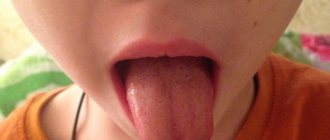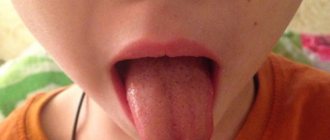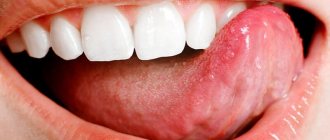The vast majority of newborns suck their fingers, and, as can be seen in the pictures obtained using ultrasound, even babies in the womb do this.
Such an action is laid down by nature, because the sucking reflex is necessary so that a baby that is barely born can survive and get food - mother’s milk.
For unborn babies, thumb sucking means training. That is why a skilled baby with a trained reflex grabs with his lips everything that touches them.
The sucking reflex is so strong that often a newborn sucks his fingers not only because of hunger, but also in order not to lose an important skill.
The interaction of the facial muscles, trigeminal, vagus and nasopharyngeal nerve trunks during sucking helps to stabilize the central nervous system and activate brain activity.
An important result of this “action” is not only improving the functioning of the central nervous system of a young child, but also evoking such important emotions for him as a feeling of security, calmness and psychological satisfaction.
Why does an older baby suck his thumb?
And if the behavior of a newborn baby can be explained by basic instincts, then why does the child suck his thumb in adulthood? Scientists have identified several main reasons for this behavior:
- Fist sucking after 6 months can be explained by the fact that the child’s tongue and oral cavity turns into a means of exploring the world around him and obtaining information important for development. The baby puts everything that gets into his hands into his mouth. This applies to toys, blankets, pet tails and, naturally, your own fingers.
- The obvious reason for baby thumb sucking is hunger. It doesn’t matter whether the baby is breastfed or is fed a special milk formula, sucking is the only way to get food. That is, a baby who puts his fist in his mouth signals to his mother that he is hungry.
- Excessively early weaning often leads to a situation where the child sucks his thumb. Moreover, a certain pattern can be seen - the shorter the period of natural feeding, the higher the likelihood that the baby will begin to put his fist in his mouth.
- Another reason for thumb sucking is teething, which is accompanied by pain. To relieve discomfort and “scratch” irritated gums, the child puts into his mouth not only his fingers and fist, but also any other objects located nearby.
- For the baby, the mother’s breast is a guarantee of security, so he perceives sucking as a way to calm down and feel safe. That is why, in case of any emotional discomfort, alarming situation, or the appearance of a stranger in the house, the child reaches for a finger, as if it were a substitute for the mother’s breast.
- A 2-year-old child (a little younger or a little older) may suck his thumb due to lack of parental attention. When a child is bored without his mother, he subconsciously puts his finger in his mouth to compensate for the warmth of the mother's body.
There is an opinion that children who receive their mother's breast on demand, without any restrictions, very rarely suck their fingers. This is explained simply: babies satisfy all the basic instincts and the desire to be close to their mother.
Advantages of calling Virilis Group specialists to your home
- Travel to any area of the city and region without restrictions.
- No insurance, registration or citizenship is required to receive medical care.
- Providing assistance to children of any age.
- Experience in responsible treatment of children in St. Petersburg since 1991.
- 6 own children's medical centers with 650 specialists in 49 specialties.
- Possibility of diagnostics and continuation of treatment in our clinics.
- Coordination with other doctors of the VIRILIS Group of Companies clinics: we are a single team, and not individual doctors from a “mobile” clinic.
- 24/7 contact center.
- Issuance of official medical certificates and documents.
- Possibility of purchasing a package of a comprehensive medical program for a child, including the “Emergency Care” and “Comprehensive Examination at Home” packages.
- Special medical programs for newborns and infants.
Is thumb sucking harmful?
Pediatrician Evgeny Komarovsky is convinced that thumb sucking is not a child’s problem, but a mother’s problem. It is parents who worry about this, especially if they hear negative comments from others.
Most often, this habit disappears on its own, unless, of course, it is reinforced due to the wrong actions of mom or dad. However, stereotypical behavior can also lead to a number of negative consequences:
- When sucking fingers, various harmful microorganisms and worm larvae may enter the digestive tract. Of course, this does not happen at 2 months or a little later, when the child spends all his time in the crib. But with the onset of the active period, the baby begins to explore the world around him, simultaneously pushing his not always clean fingers into his mouth.
- According to many orthodontists, such childhood weakness is fraught with the formation of a malocclusion (the upper front teeth protrude forward) and even problems with the development of speech skills. This is possible if thumb sucking continues after the age of five, when baby teeth begin to fall out.
- If the habit has passed into older preschool and even primary school age, then the child will have a hard time because of the ridicule of his peers. And this is already fraught with serious psychological problems and difficulties with adaptation.
- Fingers also suffer from sucking. The impact of teeth, gum pressure, and constant contact with saliva leads to the appearance of cracks, calluses, abrasions and deformation of nails. Pathogenic bacteria can enter the blood through damaged skin, resulting in tissue infection and inflammation.
Thus, the ingrained habit of sucking fingers is potentially harmful to the child: both from a hygienic and psychological point of view.
How can we wean a child from this unprofitable addiction? The choice of method will depend on the reason why the baby reaches for his fingers, his age and personality characteristics.
What is dangerous about the absence of a sucking-swallowing reflex?
It takes a lot of time to restore the sucking reflex, but with competent coordinated actions by doctors and the child’s parents, a favorable prognosis is possible. Children catch up with their peers in development by the end of the first year of life (less often the third).
If the unconditioned reflex cannot be restored, two scenarios are possible:
- The child dies of exhaustion.
- Further tube feeding. Most of these children do not live up to one year, some of them can last up to 2-3 years. Death is associated primarily with disruption of the digestive tract.
How to wean a child from thumb sucking?
More recently, there were, one might say, “old-fashioned” methods of getting rid of this negative habit. And to this day, some well-wishers can advise an alarmed mother in such very ambiguous ways as:
- smearing your fingers with mustard, an extract from aloe leaves, applying a bitter varnish to your nails or sprinkling your fists with pepper (the main thing is that the product has an unpleasant taste);
- restriction of movements by bandaging the fingers, putting mittens on the hands, tightly swaddling (if it comes to infants) or tying the arms to the body of older children;
- constant screams that sound every time the child puts his finger to his mouth;
- threat of punishment for trying to suck a finger or direct punishment.
Some parents consider such methods quite effective, while others point out their cruelty. For example, mustard can harm the oral mucosa.
Such restrictive measures often end in a relapse into a bad habit. As soon as parents stop tying their hands or lubricating their fingers with something bitter, the baby begins to suck even more intensely in order to calm down and restore a positive psychological attitude.
Parents should choose the most painless method for eliminating negative attachments. The most reasonable and obvious step is to find and eliminate the root cause why the baby sucks his fingers.
Up to 2 years
Usually, by the beginning of the second year of life, the sucking reflex fades away on its own. However, due to the dissatisfaction of the basic instinct in infancy, thumb sucking can become a habit. The rules for getting rid of addiction will depend on the way the child is fed.
Breast-feeding
If a baby feeding on mother's milk additionally sucks a finger, the mother, first of all, should make sure how correctly she has established the feeding of the baby. Most likely, the reason is very simple - the baby is hungry and demands his mother’s breast. What to do?
- Try increasing the duration of feeding. Let the baby stay at the breast for more than half an hour. In this case, the sucking baby will be full and satisfy basic instincts.
- If you give your baby both breasts at one meal, try offering them at regular intervals. That is, the second breast is given only after the baby has suckled the first for 25 minutes.
- There is no need to worry that your child will overeat. No matter how long he stays near his mother’s breast, he will take the amount of milk that is necessary for complete saturation.
- If your baby gets distracted by something while feeding, there is no need to cut the meal short. Wait a little, and the baby will return to his mother’s breast on his own.
If possible, wind down the feeding process gradually. At first you need to reduce the number of daytime feedings, and only then move on to night feedings. This will allow the baby to experience weaning more calmly.
Artificial feeding
If the child is an artificial person, then weaning off a bad habit will be done in slightly different ways. In the case of IV, children are fed according to a certain schedule, and a portion of the formula is dosed. What to do in such a situation?
- Reduce the intervals between meals if your baby begins to pull his fingers towards his mouth. This is a signal that he is feeling hungry.
- To fully satisfy the sucking reflex, you should purchase a pacifier that allows you to lengthen the feeding process. The device must be rigid and have a smaller hole.
- Instead of a finger, offer your child a pacifier, but to avoid harmful effects on the teeth, it is better to take an orthodontic model. It ensures the correct position of the tongue in the oral cavity and promotes the optimal structure of the incisors.
If your baby is teething, you need to purchase a high-quality teether with an additional cooling element. This device will help the child give up his fingers.
In general, expert advice regarding the habit of sucking fingers at this age comes down to satisfying the sucking reflex. Mother's breasts, a bottle with formula, or an orthodontic pacifier can come to the rescue.
From 2 to 5 years
When a baby is 2 or 3 years old, the factors that cause him to suck his thumb are no longer associated with reflexive behavior. The psychological causes of obsessive behavior are at the forefront.
Among the main reasons for the formation of a bad habit or its return, experts identify the following “catalysts”:
- dysfunctional family environment;
- strict parenting methods;
- lack of mother's attention;
- problems getting used to kindergarten;
- psycho-emotional overload;
- fears.
Before moving on to solving the problem, you need to establish its true cause. You can do this yourself by analyzing your own and your child’s behavior, or you can contact a specialist who will also tell you how to wean your baby from thumb sucking. General recommendations are:
- Pay more attention to your child. Read books, communicate, engage in outdoor games, play a small ball more often to keep children's fingers occupied. In general, give your child warmth and a feeling of security.
- Reduce emotional or intellectual stress. This is especially true for those mothers who are passionate about the idea of early education for their children. Another rule is to give up exercise in the evening, instead of playing games, introduce the ritual of bathing in the bath.
- Closer to the age of five, children develop various fears and phobias: fear of the dark, monsters, fairy-tale characters. An impressionable child strives to suck his finger and calm down. It is better to combat this reason with the help of psychologists.
- Avoid punishment, especially corporal punishment. Three-year-old children are already able to explain the reason for their behavior. In turn, they can also be told why thumb sucking is ugly and unhygienic.
If you have spent a lot of effort and have not achieved a positive result, you should contact a psychologist or psychotherapist. A specialist will help you cope with an intractable problem.
From 5 years and older
If a child sucks his thumb even after the age of five, parents should be wary. In most cases, such a habit indicates serious psychological problems that require professional intervention.
Thus, some cases of thumb sucking in school-aged and adolescent children are a manifestation of obsessive-compulsive neurosis, arising for physiological and psychological reasons (for example, due to severe stress).
To make sure that a bad habit is a symptom of this disorder, you need to pay attention to other signs. Thus, a child sucking his finger may demonstrate:
- winding hair around a finger or pulling out curls;
- biting nails or, for example, pencils;
- scratching or pinching the skin;
- obsessive cough.
Older schoolchildren often demonstrate obsessive thoughts, various ritual actions, high anxiety, various fears, and depressive mood.
Naturally, to make or exclude such a diagnosis, you need to contact a neurologist or psychiatrist. The specialist will prescribe the necessary medications and psychotherapeutic procedures - play, cognitive or art therapy.
Parents in such a situation should follow the following recommendations from specialists:
- provide a comfortable home environment;
- prevent emotional and intellectual stress, so as not to aggravate the course of the disease;
- refuse to focus children's attention on thumb sucking and other obsessive actions;
- track every change in children's behavior.
Of course, you shouldn’t scold your child for such addictions. Punishment will only intensify the manifestation of negative symptoms and lengthen the recovery period.
What is the reason for the weakness of the sucking-swallowing reflex?
A decrease in the reflex in infants is due to the following reasons:
- birth injuries, fetal hypoxia (during childbirth or intrauterine), which led to damage to the nervous system;
- paralysis or paresis of the cranial nerves (vagus, trigeminal, facial, hypoglossal and glossopharyngeal);
- severe diseases of internal organs, accompanied by severe weakness, lethargy, and malaise;
- flat shape of the mother’s nipples;
- mental retardation;
- damage to the oral mucosa (stomatitis);
- diseases in which breathing through the nose is impaired (ARVI, acute or chronic rhinitis of any origin).
Babies with a weakened reflex sluggishly suck on the breast or bottle nipple or even refuse to eat and quickly fall asleep while feeding. Such babies are discharged home only when they have already learned to suck well. In the future, they should be observed by a neurologist so as not to miss neurological pathology.
As a conclusion
You need to unlearn this bad habit, but if nothing works, then you should stop and take a breath. Thumb sucking is, of course, a worrying sign that requires an adult response. However, it cannot be considered a disaster.
Experts recommend acting consistently and with maximum caution. You cannot force a child; punishment will also not help in the fight against a bad habit.
The choice of the preferred method will depend on several factors, including the age of the child and the cause of the negative addiction. It is better to abandon harsh methods such as smearing mustard on your fingers or tying your hands.
Thus, the process of weaning off the habit of thumb sucking can take a long time. And yet there is no need to despair. The mother needs to gain strength and patience, and the baby will definitely very soon give up the idea of putting his fist in his mouth.
Call a breastfeeding specialist to your home
At the group's children's medical centers, we know that the most convenient place for breastfeeding consultations is your own cozy home:
- A specialist will come to you at a convenient time. You don't have to go to the clinic and wait in line. Consultations can also be held directly in the maternity hospital (if visits are permissible) or in a medical center.
- A familiar home environment makes consultation easier for both mother and child.
- At home, the consultant will be able to devote more time to both the child and the parents.
- The consultant is always a phone call away: day and night (at night you can call the contact center or write to the consultant, the consultant will answer as soon as possible), on weekdays and on weekends.
- Support from a specialist is not one-time consultations, but accompaniment: the consultant will visit the mother and baby again, if necessary, after 2-4 weeks to check how feeding is going and the baby’s weight gain.
In addition to calling a breastfeeding specialist to your home, you can call doctors of the main specialties: pediatrician, surgeon, allergist, urologist, pulmonologist, hematologist, dermatologist, ophthalmologist, ENT doctor, orthopedist, gastroenterologist and osteopath. You can also take tests, perform physiotherapy and massage at home. Infant swimming consultants can advise you at home and conduct a master class.
Find out about the special offer “Comprehensive examination at home”: the convenience of this program is that you can choose from a list of pediatric doctors exactly those specialists that your child needs and an individual set of medical services with a 20% discount!
Psychological reasons
- The baby may lack parental attention, and he tries so hard to amuse and calm himself. The care and love of parents helps in this case. We need to show more attention to the baby, keep him busy with exciting games, give him more opportunities to communicate and play with peers. You should constantly keep him occupied with something so that he doesn’t mope and is constantly doing something. This way he won’t be distracted by bad habits at all.
- The baby can express anxiety, excitement, concern in this way and tries to compensate for them with something. He clearly lacks affection and pleasant impressions. It is necessary to rid him of stressful situations so that they do not lead to prolonged depression. Any means that can create a positive mood will do for this. You shouldn’t constantly scold him; on the contrary, you need to morally encourage him. Over time, the urge to suck tongue will decrease. But this will not happen immediately.
Preventing the development of weak sucking reflex
You can avoid weakening or loss of the sucking-swallowing reflex if you adhere to the following recommendations:
- prevention of fetal hypoxia or birth injuries;
- regular observation by a gynecologist throughout pregnancy, timely diagnosis of intrauterine diseases;
- carrying out sanitation of the birth canal before childbirth to avoid infection of the child;
- timely treatment of stomatitis, rhinitis, acute respiratory viral infections in infants that make sucking difficult;
- acquiring the skills of putting a baby to the breast (taking special courses for pregnant women).
If you notice that your child is not suckling well, a pediatric neurologist at the Edkarik clinic in Kaliningrad will help you find out the cause of the baby’s weak sucking reflex. Don’t hesitate - sign up for a consultation by calling the numbers listed on our website.











